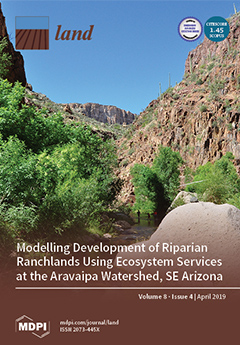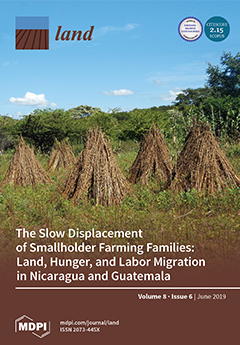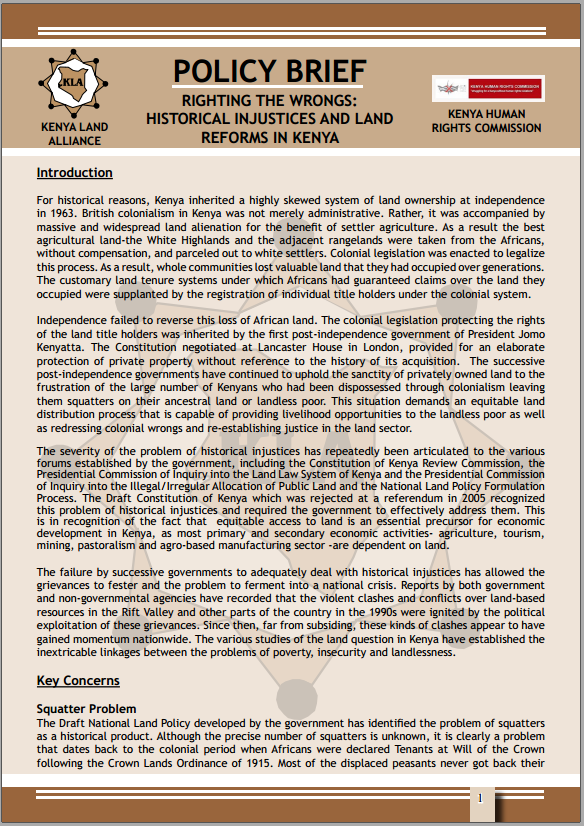The Pinheiro principles United Nations principles on housing and property restitution for refugees and displaced persons
PROPERTY RIGHTS THROUGH SOCIAL MOVEMENTS: THE CASE OF PLANTATIONS IN KERALA, INDIA
Globally, increased investor interest in land is confronting various types of political mobilisations from communities at the grassroots level. This paper examines the case study of a land occupation movement called Chengara struggle in the largest corporate plantation in southern India. The movement is led by the historically dispossessed scheduled caste and scheduled tribe communities. The objective of the study is to understand the type of institutional transformation of property rights that the movement is calibrating.
Property Regimes in India: A Study of Political Determinants of Structural Factors
The stated objective of land policy in India has shifted from redistribution through land reform to ownership through land acquisition in the period between 1950 and 2014. Sub-national governments that dealt with land policy had the option to exercise a mix of redistribution and acquisition based on historical factors, social demands and political convictions. This paper makes two related arguments by tracing the path of land reforms in the states of India. The first is that there are four types of property regimes that emerged out of India at the sub-national level.
One City for All? The Characteristics of Residential Displacement in Southwest Washington, DC
This paper examines two periods of renewal in Washington, DC, USA’s southwest quadrant and their relationship with displacement. The paper situates this discussion within both the local historical continuum and globally-recognized paradigms, such as “the right to the city”. This article primarily serves as an overview of urban planning consequences in Southwest Washington DC based on extant academic literature and policy briefs.
Exploring the Nexus between Displacement and Land Administration: The Case of Rwanda
In conflict situations, many people are displaced because of hostility and arms in the area. Displaced people are forced to leave behind their properties, and this in turn interrupts the relationship between people and their land. The emergency period in particular has been identified as a weak point in the humanitarian response to land issues in post-conflict situations.
The Slow Displacement of Smallholder Farming Families: Land, Hunger, and Labor Migration in Nicaragua and Guatemala
Smallholders worldwide continue to experience processes of displacement from their lands under neoliberal political-economic governance. This displacement is often experienced as “slow”, driven by decades of agricultural policies and land governance regimes that favor input-intensive agricultural and natural resource extraction and export projects at the expense of traditional agrarian practices, markets, and producers. Smallholders struggle to remain viable in the face of these forces, yet they often experience hunger.
War-Induced Displacement: Hard Choices in Land Governance
Civil war and violence often force large numbers of people to leave their lands. Multiple waves of displacement and (partial) return generate complex overlapping claims that are not easily solved. As people return to their regions of origin—sometimes after decades—they tend to find their land occupied by other settlers, some of whom hold legal entitlements. In the places of arrival, displaced people affect other people’s access as they seek to turn their temporary entitlements into more definite claims.
Socially-Tolerated Practices in Environmental and Social Impact Assessment Reporting: Discourses, Displacement, and Impoverishment
Normative guidelines for addressing project-induced displacement and resettlement have been successful in coercing companies and practitioners to comply with international standards and local requirements. However, good practice has not always been effectively implemented, leading to reduced social wellbeing of people in local communities. We assess how the reciprocal relationships between institutional norms and practitioners’ situated perspectives about company-community interactions can improve social management practice.
Righting The Wrongs: Historical Injustices and Land Reforms in Kenya
For historical reasons, Kenya inherited a highly skewed system of land ownership at independence in 1963. British colonialism in Kenya was not merely administrative. Rather, it was accompanied by massive and widespread land alienation for the benefit of settler agriculture. As a result the best agricultural land-the White Highlands and the adjacent rangelands were taken from the Africans, without compensation, and parceled out to white settlers. Colonial legislation was enacted to legalize this process.







